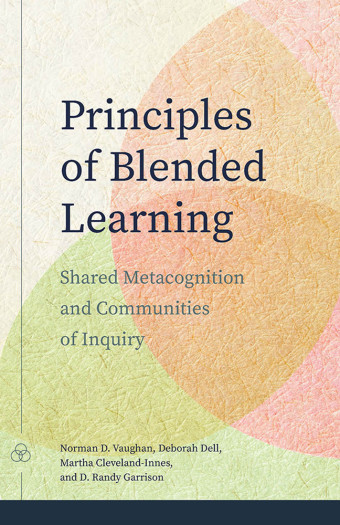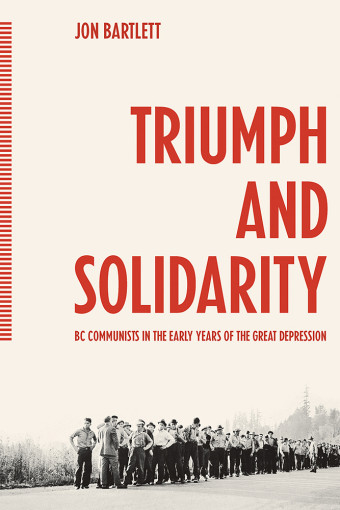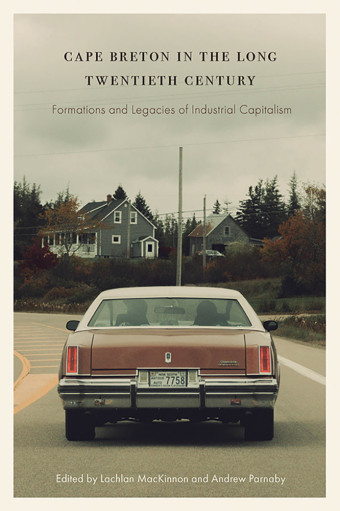The Athabasca University Press was founded in 2007 as the first open access publishing house in Canada. Its mandate, like the mandate of its parent institution, is to reduce barriers to knowledge.

Megan Hall
“We do this by increasing access to scholarship and literature by allowing readers to access all our books and journals for free on our website,” says Megan Hall, current director of AU Press. Athabasca University generously supports the Press’s open access activities.
AU Press uses some innovative strategies to support its books and authors. Unlike many open access publishers, AU Press does not require authors to fully limit the publication of their book to open access.
“We know that the market offers many opportunities for raising awareness of our books and visibility of our authors, so we also make print and digital editions available for sale across a worldwide network,” says Hall.

- Political Activist Ethnography
- Agnieszka Doll (Editor), Laura Bisaillon (Editor), Kevin Walby (Editor)
- Athabasca University Press
- $37.99 Paperback, 304 pages
- ISBN: 978-17-71993-98-2
The press’s longstanding commitment to the principles of open access and the removal of barriers to ideas and knowledge has earned this company recognition from the Benetech group, a non-profit organization that creates innovative software for the social good.
As a Benetech-approved publisher, AU Press has successfully demonstrated that its ebooks meet or exceed accessibility standards that support the needs of all readers, including those with perceptual (print) disabilities.
As its mandate suggests, many of AU Press’s marketing strategies are based on its interest in having its books reach the broader public.
“Social media is a really important avenue for doing this as it allows us to expand our reach into communities near and far,” Hall says.
“In addition, we invest in making beautiful books – a great cover does the lion’s share of the work of making a book notable and recognizable, and we want to provide our authors with the best vehicle for their work.”

- Principles of Blended Learning
- Norman D. Vaughan, Deborah Dell, Martha Cleveland-Innes, D. Randy Garrison
- Athabasca University Press
- $29.99 Paperback, 172 pages
- ISBN: 978-17-71993-92-0
AU Press is committed to high production quality and accessible design, and to creating unique packages for each of its projects.
A recent title, Indigiqueerness: A Conversation about Storytelling by Joshua Whitehead in conversation with Angie Abdou, demonstrates this attention to design, with its use of colour, graphic elements, photo collages, and space to convey the energy and innovation of Whitehead’s work. (This book was born out of AU’s excellent writer-in-residence program.)
AU Press’s books are regularly selected for the Association of University Presses’ annual Book, Jacket, and Journal Show, which features the best in book design from the past year. Their books are also often shortlisted for or winners of the design awards (and others) at the Alberta Book Publishing Awards.
For example, three recent titles received attention from the 2023 Alberta Book Publishing Awards for their design: Grieving for Pigeons: Twelve Stories of Lahore by Zubair Ahmad, translated by Anne Murphy; Memory and Landscape: Indigenous Responses to a Changing North, edited by Kenneth L. Pratt and Scott A. Heyes; and Little Wet-Paint Girl by Ouanessa Younsi, translated by Rebecca L. Thompson.
AU Press titles also receive accolades from outside of Alberta.

- Triumph and Solidarity
- Jon Bartlett
- Athabasca University Press
- $34.99 Paperback, 372 pages
- ISBN: 978-17-71993-95-1
The memoir Under the Nakba Tree: Fragment of a Palestinian Family in Canada by Mowafa Said Househ won the 2023 Independent Publisher Award for Best Regional Non-Fiction, Canada-West, an international award.
In fact, AU Press titles have been winning awards from the beginning.
Published in 2008, Imagining Head-Smashed-In: Aboriginal Buffalo Hunting on the Northern Plains by Jack Brink, a notable archaeologist from Alberta who recently passed away, won numerous awards, including the 2009 Best Archaeology Book from the Society for American Archaeology; the City of Edmonton Book Prize; and the Public Communications Award from the Canadian Archaeological Association; as well as the 2021 Felicia A. Holton Book Award from the Archaeological Institute of America.
This success is due in large part to AU Press’s commitment to editorial excellence.

- Cape Breton in the Long Twentieth Century
- Andrew Parnaby (Editor), Lachlan MacKinnon (Editor)
- Athabasca University Press
- $44.99 Paperback, 500 pages
- ISBN: 978-17-71994-04-0
Its publications undergo rigorous peer review and thorough editing.
AU Press editors work closely with authors on their manuscripts before and after peer review to ensure that ideas are presented not only with clarity, but with refinement, that documentation is accurate, and that authorial voice is retained.
Establishing a university press is never easy. “Although I didn’t join the press until 2011, I have witnessed all of the growing pains that a new publisher experiences. Coupled with our newness was our interest in pushing the boundaries of the traditional publishing model,” Hall says.
“As you can imagine, not everything we’ve tried has been successful, but what we have developed in recent years is a really strong sense of the unique opportunity that AU Press offers to its authors and a clear vision about the impact we seek to have as a publisher.”













